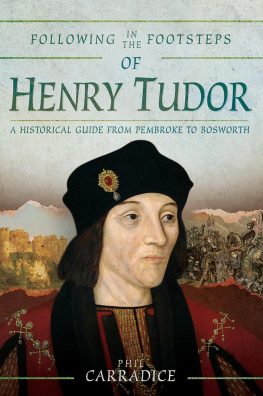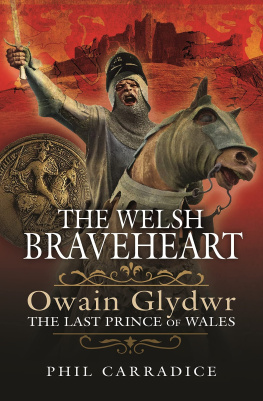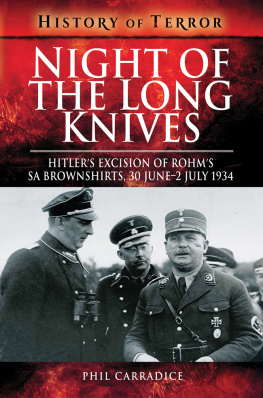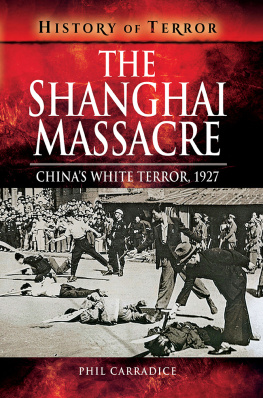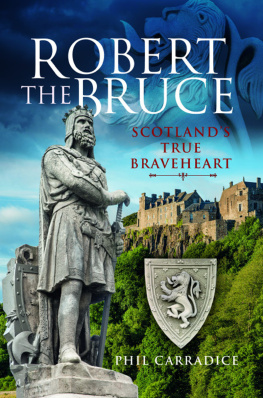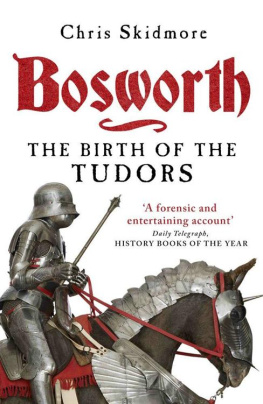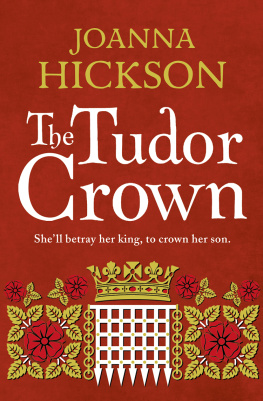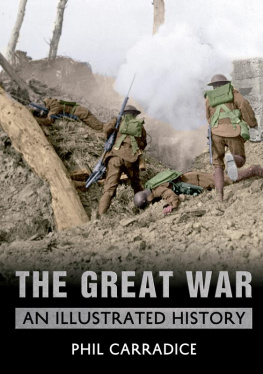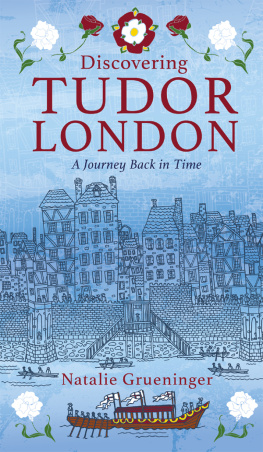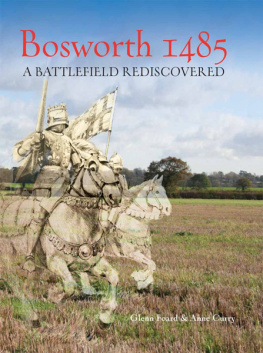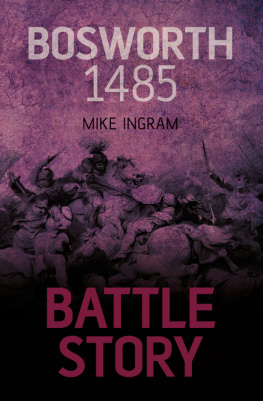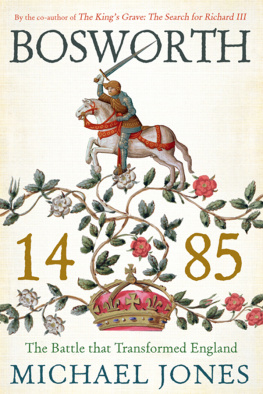FOLLOWING IN THE FOOTSTEPS OF
HENRY TUDOR
FOLLOWING IN THE FOOTSTEPS OF
HENRY TUDOR
A HISTORICAL JOURNEY FROM PEMBROKE TO BOSWORTH
PHIL CARRADICE
First published in Great Britain in 2019 by
Pen and Sword History
An imprint of
Pen & Sword Books Ltd
Yorkshire - Philadelphia
Copyright Phil Carradice, 2019
ISBN 978 1 52674 330 5
eISBN 978 1 52674 331 2
Mobi ISBN 978 1 52674 332 9
The right of Phil Carradice to be identified as Author of this work has been asserted by him in accordance with the Copyright, Designs and Patents Act 1988.
A CIP catalogue record for this book is available from the British Library.
All rights reserved. No part of this book may be reproduced or transmitted in any form or by any means, electronic or mechanical including photocopying, recording or by any information storage and retrieval system, without permission from the Publisher in writing.
Pen & Sword Books Ltd incorporates the Imprints of Pen & Sword Books Archaeology, Atlas, Aviation, Battleground, Discovery, Family History, History, Maritime, Military, Naval, Politics, Railways, Select, Transport, True Crime, Fiction, Frontline Books, Leo Cooper, Praetorian Press, Seaforth Publishing, Wharncliffe and White Owl.
For a complete list of Pen & Sword titles please contact
PEN & SWORD BOOKS LIMITED
47 Church Street, Barnsley, South Yorkshire, S70 2AS, England
E-mail:
Website: www.pen-and-sword.co.uk
or
PEN AND SWORD BOOKS
1950 Lawrence Rd, Havertown, PA 19083, USA
E-mail:
Website: www.penandswordbooks.com
For Dad, who would not have believed a word of it, but would
have enjoyed it anyway.
A Note on Language
Books, reports and writings from the period covered in this book are relatively rare. The Battle of Bosworth Field, for example, while often written about in hindsight, is probably the most poorly recorded or reported battle from the entire length of the fifteenth and sixteenth centuries at least as far as contemporary accounts are concerned.
To find books, articles and papers from the early days of Henry Tudor is no easy task. They do exist, however, and often give a fascinating view of the times, even if that view or perspective is sometimes rather biased. Writers like Polydore Vergil, for example, have helped create the negative view that most of us, Shakespeare included, have on Richard III while at the same time puffing up the character of Henry who, it must be remembered, was his patron.
Where quotations from contemporary sources are included in the text of this book in particular from the writings of Vergil, lines from The Ballad of Bosworth Field and the anonymous Life of Sir Rhys ap Thomas I have not attempted to change either the language or the spellings. As a consequence they are presented here as they would have been read when the Tudor dynasty was either still in place or was fondly remembered.
Vergil, in particular, was writing in the early sixteenth century, a time that was only a hundred years since Chaucer had produced The Canterbury Tales. However, already the English language as we know it today was beginning to take shape and Vergils words seem to be light years away from those of Chaucer. Another hundred years and we have the remarkable prose and poetry of Shakespeare which are really modern English in style and spelling. Vergil fits between the two.
Even so, as far as Vergil is concerned there are notable differences from the spellings and intonations that we use today. That is part of their charm.
The words, phrases and sentences are not difficult to read and seem to me to be more in keeping with the times. So, there are no apologies from me, at least at this stage. Read the quotes and see for yourselves.
Introduction
The early life of King Henry VII of England, Harri or Henry Tudor as he is often known, is shrouded in mystery and confusion. His birth, his childhood and adolescence, his escape and flight from Wales, his time as an exile in Brittany and France, his return to his native land and the march to a stunning victory at the Battle of Bosworth Field the litany is long and none of it is quite as straightforward or as clear as you might expect.
There are very few records from the time of Henrys birth and adolescence. Not only that, there are almost no first-hand accounts of events leading up to the Battle of Bosworth Field on 22 August 1485. The defeat of King Richard and the establishment of the Tudor dynasty have become shrouded in legend, so much so that it is hard to know where the truth stops and the stories begin.
One of the few nearly contemporaneous accounts of the events leading up to Bosworth comes in Polydor Vergils Anglica Historia . An Italian humanist who lived most of his life in England, Vergils book was commissioned by Henry after he became king. Although Vergil attempts to provide an accurate, unbiased account of the Wars of the Roses it must be remembered that he was writing for the Tudors. His view of Richard III, whom he calls ambitious, devious and wicked, is in complete contrast to his portrait of Henry. It is no more than you would expect.
Vergils account of the times, however, remains perhaps the best and most accurate retelling of the events that sent Henry into exile and then brought him back again. It is admittedly a second-hand account, but he spent twenty-six years on the project, spoke with many of those involved (including Henry) and tried to be as objective as possible. Within the confines of the remit he was given, his book is about as good as it gets.
The poems or ballads from the time were written by men who were, in general, not connected with the court and while accurate in some respects, were generally the view of ordinary, often uneducated, members of society who were usually more intent on selling a few broadsheets at the fair than in providing an accurate historical account. The anonymous Ballad of Bosworth Field is an exception and contains much useful information.
Holinsheds Chronicles and the Crowland Chronicles are also useful primary sources. Holinshed wrote his book in the middle years of the sixteenth century, which does not make it any less accurate or honest. Shakespeare, as we know, used his work to fuel his own literary and artistic endeavours. The Crowland Chronicles were produced much nearer the date of the battle, probably 1486.
Apart from Vergil and the bards there are legends, tales, stories, call them what you will, and they are there by the score. The story of Henrys journey to Bosworth is littered with tales of bridges under which his supporters supposedly lay in order for Henry to march across their bodies and so preserve their honour and false promises of loyalty to King Richard III; gifts and pensions the Tudor earl dished out and houses where he paused on his march to Bosworth are commonplace; secret dealings between Henry and Richards noblemen are there by the score. The legends continue to proliferate.

